
The Museum Meiji-Mura in front of the Lake Iruka, in Inuyama city in Aichi prefecture, opened on 1965 to preserve the Japanese architecture of the Meiji period. One of the most remarkable things of Japan is the fast paced construction of new buildings, and the destruction of the old ones. The founders of the Meiji-Mura museum seeking to save important buildings from destruction created this museum that purchase period buildings marked for destruction, dismantle them and rebuild them back at the museum, recreating the original apparence. Ten of the buildings on the Museum are designeted “Important Cultural properties” by the Japanese government.The museum covers an area of 1,000,000 m2, and has over 60 buildings.
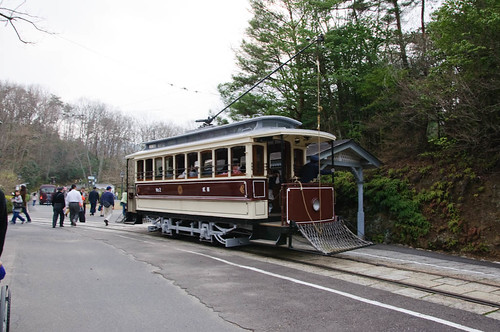
You can go around the park by foot, use a special bus, a steam locomotive and period streetcars fromn Kyoto. The streetcars of Kyoto were the first in Japan (1895).
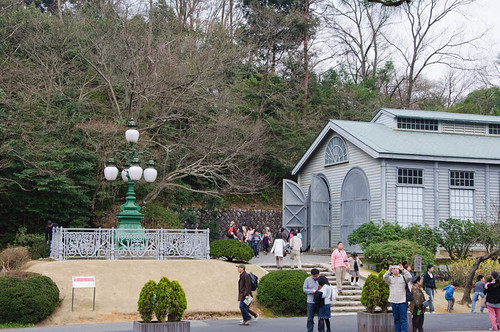
Electric lamp originally located at “Nijubashi” in the imperial Palace (1888), one of the first electric lamps in Japan. To the right is the Shimbashi factory of the Japan Railway bureu, originally at Shinbashi (1889).
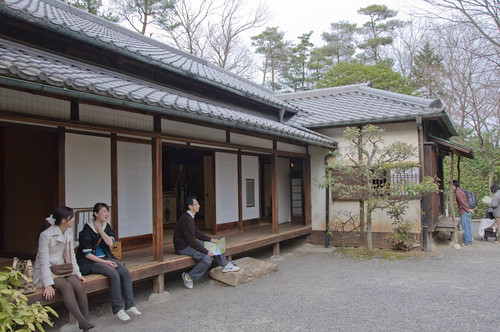

House of Ogai Mori and Natsume Soseki. The writers lived at this house, in Bunkyo Ward in Tokyo. Ogai Mori rented the house for a year in 1900, published “the dancing girl”, on that year, he also wrote “The courier” while he was living there. Natsume Soseki (the writer portrayed on the 1000 yen note), lived in this house 10 years later, publishing “I am a cat”, while living there, the novel portrays detail of living at this house, Soseki lived at this house for 3 years.
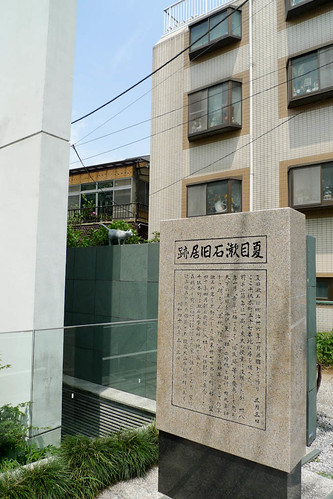
There is a small monument outside the School of Medicine of Japan marking the place of were the house use to be located.
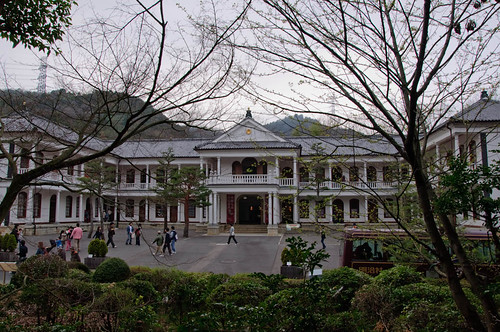
Mie Prefectural Office (1869), this building has been designated as an “Important Cultural Property”

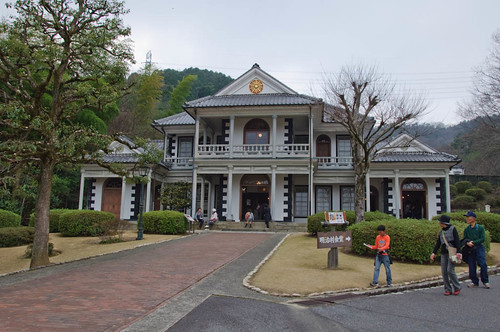
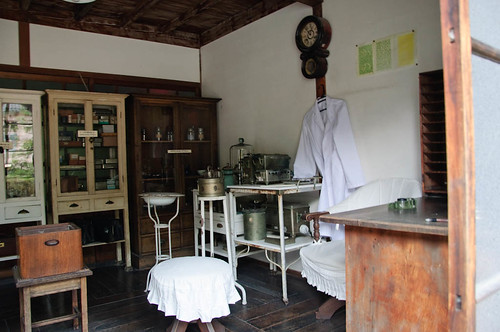

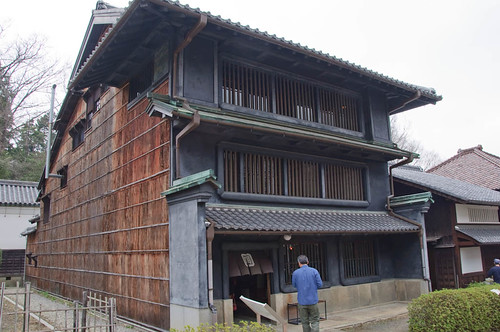
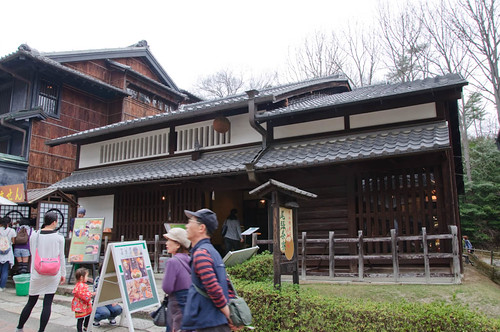
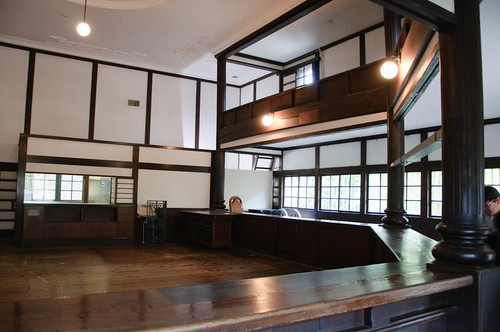
Located at the brick road street are: The Old Higashiyamanashi Country office (1885) an “important cultural property”, The Office of Dr. Shimizu (1897) from Nagano, The Tomatsu house (1901)from Nagoya, the Nakai sake-brewer house (1870) from Kyoto, and the Yasuda Bank (1908) from Fukushima.
Español
2 comments:
Very interesting place... There's a very similar place in Sapporo (though on a much smaller scale)... ( http://japaneseties.blogspot.com/2010/04/pioneer-for-day-sapporo-style.html ).
It's nice to see that at least someone was thinking about preserving their heritage.
It is a great place, I haven't been to Sapporo yet, but I know it has a lot interesting stuff to do. I agree, I see a lot of interesting houses being destroyed to build generic buildings.
Post a Comment